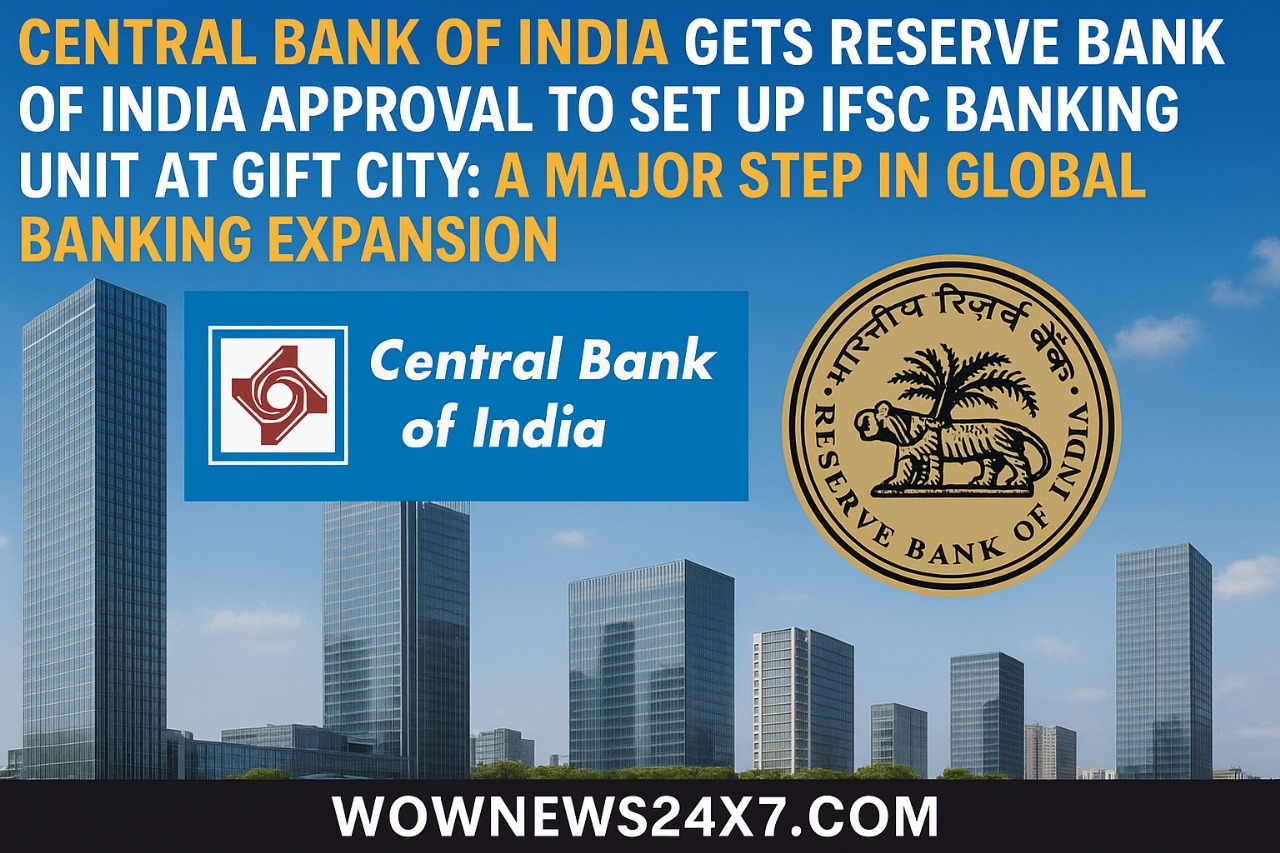The Central Bank of India has received formal approval from the Reserve Bank of India (RBI) to establish an International Financial Services Centre (IFSC) Banking Unit (IBU) at GIFT City, Gujarat. This development marks a significant milestone for the bank as it expands its presence in the global financial ecosystem and taps into international banking opportunities from India's first operational IFSC.
Key Highlights of the IFSC Banking Unit Setup:
RBI Approval: The Reserve Bank of India granted permission to Central Bank of India to set up the IFSC Banking Unit under applicable regulatory provisions, enabling it to offer offshore banking services from within India.
Presence at GIFT City: The international financial hub located in Gandhinagar, Gujarat, provides state-of-the-art infrastructure and regulatory support tailored to global financial institutions and banking operations. It positions Indian banks like Central Bank of India on par with foreign branches while benefiting from simplified regulations and tax incentives.
Expanded Global Services: The IFSC Banking Unit will allow Central Bank of India to conduct foreign currency transactions, including trade finance, external commercial borrowings, currency risk management, and treasury operations targeted at non-resident clients, multinational corporations, and foreign investors.
Offshore Banking Capabilities: The IBU structure enables the bank to compete internationally by offering specialized products and services such as forex dealings and cross-border funding, enhancing client servicing and revenue diversification.
Regulatory and Capital Framework: The Central Bank of India will operate the IBU abiding by RBI guidelines, including maintaining minimum capital norms and following specific compliance standards that are distinct from domestic banking entities. The liabilities of the IBU will be exempt from certain reserve requirements such as CRR and SLR, improving operational efficiency.
Strategic Growth Catalyst: Establishing an IFSC Banking Unit aligns with the government and RBI's vision to transform GIFT City into a global financial center challenging established offshore hubs. It enables Indian banking institutions to retain financial business domestically and grow their international transaction volumes seamlessly.
Operational and Market Impact:
The Central Bank of India’s move to set up an IFSC Banking Unit will help the bank tap burgeoning international trade flows and financial markets within a globally competitive regulatory framework. The IBU will serve as a springboard for greater participation in international banking services from India, including foreign currency lending, fund management, and corporate banking for non-resident Indians and multinational clients.
The GIFT City IFSC offers significant benefits such as taxation concessions, a regulatory sandbox for fintech innovation, and supportive customs and legal infrastructure, creating an attractive ecosystem for banking operations expanding abroad. In addition, the availability of an IBU enhances the bank’s ability to meet its clients’ global funding and treasury needs more efficiently.
Outlook and Future Prospects:
With RBI’s approval for the IFSC Banking Unit at GIFT City, Central Bank of India is positioned to expand its business horizons beyond traditional domestic banking. This development demonstrates the bank’s commitment to integrating with the global financial architecture and boosting India’s standing as a financial hub.
The bank is expected to leverage its IBU to enhance foreign currency dealings, support export-import financing, facilitate external commercial borrowings, and provide innovative forex solutions. The strategic presence at GIFT City also opens avenues for collaboration with global financial institutions, investors, and international corporates.
By actively participating in India’s flagship IFSC initiative, Central Bank of India joins other leading domestic and foreign banks operational at GIFT City, collectively advancing the country’s vision of becoming a premier international financial services destination.
Source: Reserve Bank of India, Central Bank of India official disclosures, Reuters

